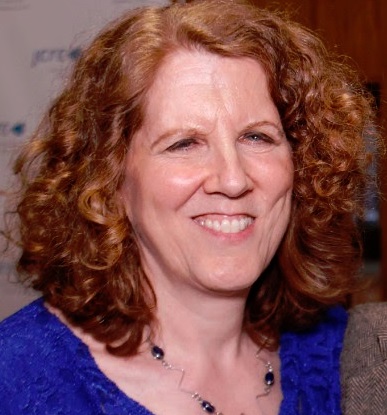How can we feel sorrow and embrace joy at the same time? This is a question for all of us, but one that especially speaks to social justice activists.
Authors were asked to offer short teachings on a piece of text that inspires them. To submit a text resource, click here.
Two weeks before Seth’s bar mitzvah, his pet bird died. This was the latest in a series of illnesses and losses that the family had endured. He could not imagine celebrating his bar mitzvah in the midst of his grief.
Understanding his sorrow, yet wanting him to enjoy his big day his moms assured him that you can feel sad about something and still have joy about something else at the same time.
They offered Seth the fundamental Jewish paradox that especially speaks to social justice activists. When we feel sorrow, we must also embrace joy. Yet often we feel like Seth and ask how is that possible?
That’s why I turn to Micah 6:8. Micah’s words provide instructions for embracing the fullness of life. I have come to translate this verse as follows:
הִגִּ֥יד לְךָ֛ אָדָ֖ם מַה־טּ֑וֹב וּמָֽה־יְהוָ֞ה דּוֹרֵ֣שׁ מִמְּךָ֗ כִּ֣י אִם־עֲשׂ֤וֹת מִשְׁפָּט֙ וְאַ֣הֲבַת חֶ֔סֶד וְהַצְנֵ֥עַ לֶ֖כֶת עִם־אֱלֹהֶֽיךָ׃
The Lord has shown you what is good.
Do justice.
Act with love
Walk humbly with your Source.
Do justice. Jews have always sought to correct injustice, even before the days of the prophet Micah. We are called to transform injustice into justice. Rabbi Tarfon taught: It is not up to you to complete the work, and neither are you free to neglect it.
Act with love. In the center of the verse is the hinge that unites doing justice and walking humbly with Your Source. Make a friend. Love your neighbor as yourself. The Hebrew consists of two words for love: ahavat chesed. Love lovingly. Create caring relationships with every person. A just world is dependent on people meeting one another face to face as fellow humans. Out of those relationships we build movements for justice and create communities that care for one another.
Walk humbly with your Source. Only you can determine what your Source is. God? Your ancestors? Your principles? Your community? Walk humbly with whatever connects you to something greater, so that you see your place in the world, not above, but a part. Walking humbly with is a spiritual task. It takes practice, whether through prayer or study, meditation or movement. By slowing down and noticing what is going on outside us and within our own minds, we become aware of those who walk with us.
These simple words came from a man who lived in a time of great upheaval. He saw cities in Israel reduced to rubble. He saw great empires invade his country, murder his countrymen and sweep away the survivors to live in a foreign land, never to return. Micah didn’t even trust the leaders of his own country. And yet, he was able to give us this prescription for living every day.
The three parts of Micah’s message are in tension. They are not simple, but they speak to the complexities of life. They encompass the everyday choices we make, and they point toward a grand vision.
In your morning prayers, set an intention:
do justice, act with love, and walk humbly with your Source.
And at the end of the day, reflect:
did I do justice? Did I act with love? Did I walk humbly with?
And if you didn’t do enough today, the next sunrise offers another chance to get up and try again.
___
Rabbi Barbara Penzner has served Reconstructionist congregation Temple Hillel B’nai Torah since 1995. T’ruah named her a Rabbinic Human Rights Hero for her leadership on behalf of Hyatt hotel housekeepers across the nation and her involvement with the New England Jewish Labor Committee.







